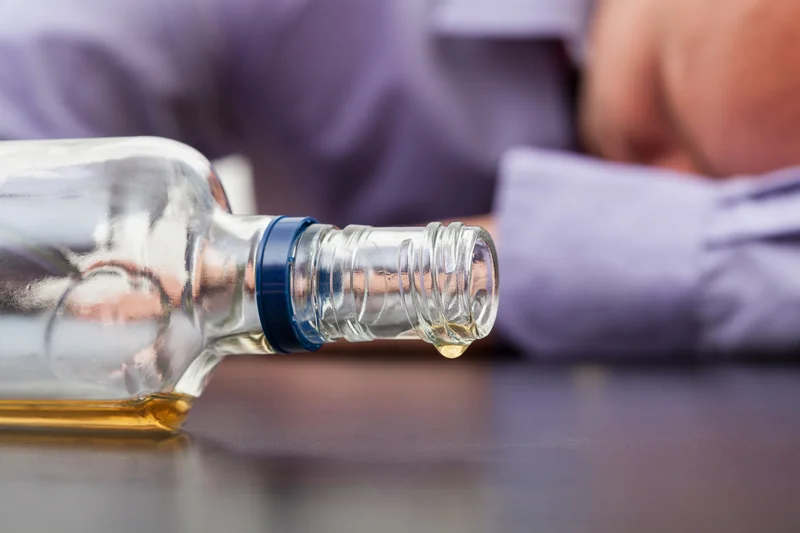
On average, alcoholics have a life expectancy that is 20 to 30 years shorter than people who do not struggle with alcohol addiction. Tests for trends were assessed using Wald tests, by fitting median values of intake per intake category as continuous terms. Restricted cubic spline regression analyses using four knots (at the midpoints of the categories used in categorical analyses) and Wald test were performed to test for non-linearity. We conducted sensitivity analyses, by restricting analyses to participants who reported to have had the same alcohol intake 5 years before baseline, including abstainers on both occasions (i.e. the stable subgroup).
- For example, a person drinking between 2 and 3 pints of beer a night will likely die 5 years sooner than someone who sticks to the recommended government guidelines of 100g per week 5.
- Excessive alcohol consumption is a leading cause of chronic diseases, which can contribute to a reduced lifespan.
- Therefore, the risk of disability among persons who had a high BMI may have been overestimated.
- Health conditions caused by end stage alcoholism can include fatigue, malnutrition, jaundice, heart failure, anemia, alcohol dementia, and cirrhosis.
Is it too late to quit smoking?
Our findings suggest that avoiding smoking and limiting alcohol consumption to light to moderate amounts of non-spirits beverages may help to lower the risk of mortality from CVD. The most effective treatment for alcoholism will be whatever works for the person to quit heroin addiction drinking and allow their body to start recovering from the damage caused by repeated heavy drinking. At Resurgence Behavioral Health, we offer a medical detox program that can help people get through alcohol withdrawal safely and make them feel more comfortable as their body rids itself of toxins. Medications and medical support are essential during this brief but important first step toward recovery. After detoxing, most patients will benefit from starting a residential alcohol addiction treatment program that typically lasts for 30 to 90 days.

Why Do Heavy Drinkers Outlive Nondrinkers?
- However, the potential bias has been shown to be acceptable for correlation analyses like in our study 30.
- The timeline varies, but many people experience improvements in liver function, blood pressure, and mental clarity within weeks to months of quitting alcohol.
- Estimated prevalence of disability by age of death and according to risk factor.
In a large observational study, life expectancy ranged from only 47 to 58 years in people hospitalized due to alcohol use disorder. All alcoholic drinks, including wine, beer and liquor, are linked to cancer. For each of these cancers, the more alcohol you consume, the higher your risk. However, drinking even small amounts of alcohol can increase the risk for some cancers, such as breast cancer. Alcohol-induced liver disease refers to liver damage caused by excessive alcohol consumption. When you drink more alcohol than the liver can process, it can become severely damaged.
TABLE 3.
- An individual diagnosed with liver cirrhosis has an expected life span thereafter of around 12 years 12.
- Here are three key factors that can contribute to improving life expectancy in alcoholics.
This is particularly true for individuals with chronic diseases such as diabetes, where alcohol can interfere with glucose management, or with respiratory system diseases, where alcohol may impair lung function. We live in a reductionist age, in which every longitudinal effect is explained away at the most fundamental possible level. And so this study will no doubt lead researchers to probe the benefits of red wine, with its antioxidants and resveratrol.


For current drinkers, the usual frequency (per week) and amount consumed of beer, grape wine, yellow rice wine, and spirits (per time) were collected separately. A tea drinker was defined as a man drinking tea at least three times a week for 6 months or more. An analysis by the Centers for Disease Control and Prevention looked at the deaths and potential life years lost due to heavy drinking from 2011 to 2015. During that time, excessive drinking caused an average of 261 deaths per day, and the life expectancy of people who drank excessively was https://ecosoberhouse.com/ estimated to have been cut short by 29 years on average.
Alcoholics have a life expectancy that is 20 to 30 years shorter compared to those who do not have an alcohol addiction. Alcohol addiction is a severe disease that can significantly impact a person’s health. The average life span of an alcoholic goes down with each drink, increasing the risk for heart and liver problems, cancer and suicide. If you or a loved one is struggling with alcohol addiction, Diamond House Detox can help. Life expectancy at age 55 differed by 1.4 years among groups defined in terms of BMI, 4.0 years by smoking status, and 3.0 years by alcohol consumption. Years lived with disability differed by 2.8 years according to BMI, 0.2 years by smoking and 1.6 by alcohol consumption.

Subscribe to The Science Times!
The last stage is end-stage alcoholism, which can significantly shorten a person’s life expectancy. In conclusions, modest drinkers, no more than one drink a day, had benefits and could gain nearly 1 year in life expectancy, in contrast to a loss of nearly 7 years if drinking more than that. The loss exceeded 10 years if drinkers also smoked, as did majority (65–80%) of drinkers. Given the reality that drinkers are prone to cross the line, clinicians should balance the risks and benefits of drinking, as well as the understanding of whether the patient is at risk for addiction. A major strength of this study was the comparison of life how long do alcoholics live expectancy and mortality in all people who had AUD diagnosed in three Nordic countries with different alcohol policies and patterns of alcohol consumption.
